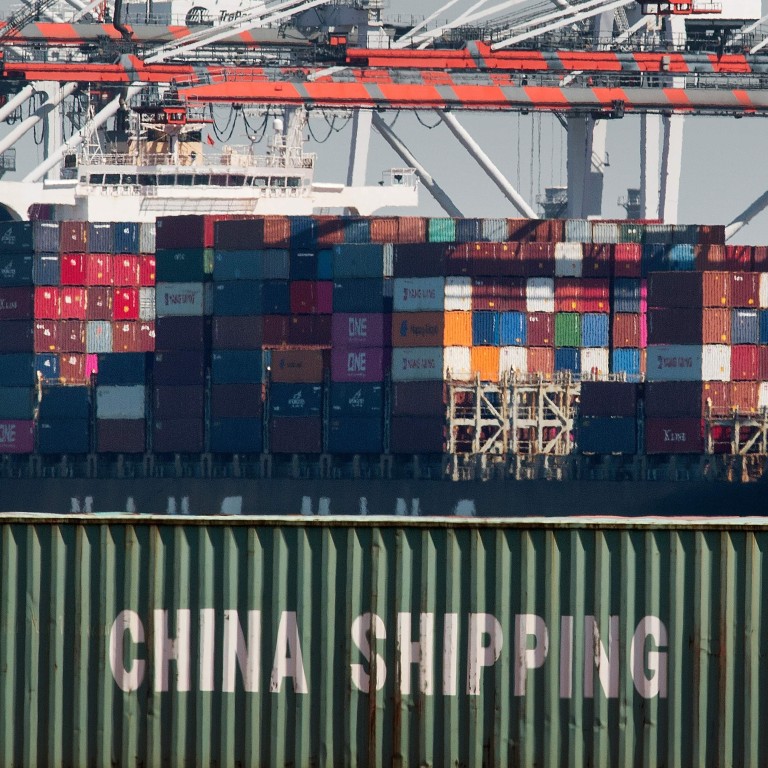
China’s envoy urges US to improve atmosphere to fulfil phase one trade deal
- New ambassador Qin Gang says China is working to implement the deal and US should create the conditions to do so
- Qin tells heads of American companies to embrace opportunities in Chinese market but says US restrictions and tariffs are not working
“It is hoped that the United States will effectively create the necessary conditions and atmosphere for the implementation of the agreement and bilateral economic and trade exchanges, instead of making it worse,” the ambassador said during Monday’s meeting.
Qin said China had steadily implemented the agreement, reached during Donald Trump’s US presidency and due to expire at the end of this year.

02:23
Gloves off at top-level US-China summit in Alaska with on-camera sparring
China is on course to be more than 30 per cent short of the US goods it promised to buy during 2021, after falling more than 40 per cent short in 2020, according to Chad Bown, an economist at US think tank the Peterson Institute for International Economics.
However, Washington has continued to impose restrictive measures such as including more than 900 Chinese entities in various restriction lists, which Qin said impaired firms’ ability and willingness to buy US goods and had a negative overall impact on the deal’s implementation.
Citing a recent report saying White House officials were considering an inquiry into China’s industrial subsidies under section 301 of the US Trade Act, Qin said “facts have proved that neither the 301 investigations nor the tariff war will work”.
The momentum of China’s economy would give growing opportunities for foreign investors, including American companies, Qin told the council, a non-profit organisation of more than 200 American companies that do business with China.
Explainer: What is the US-China trade war?
He stressed China’s determination to open up, protect property rights and IP rights, and improve policy transparency and predictability to create a fair market environment based on rule of law.
He urged the two countries to make concrete efforts to improve relations based on mutual respect, equality and mutual benefit.
Council president Craig Allen, who attended the meeting, said that despite the countries’ troubled wider relationship, “the ambassador’s message to the CEOs was that the commercial relationship must thrive and grow while we work harder to resolve disagreements”.
Chinese foreign ministry spokesman Zhao Lijian also emphasised a spirit of mutual benefit in developing trade relations and cooperation.
“We have all seen that the trade policies adopted by the Trump administration only ended up hurting its own interests,” Zhao said on Monday.

